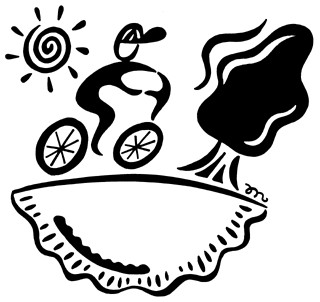A Taste of Summer
Summer Food Essays: A Pinch of Recollection, A Dash of Tradition
By Barbara Chisholm, Fri., July 14, 2000

Pasties of the Upper Peninsula
The summers of my early childhood were highlighted by our annual pilgrimage to the shores of Lake Michigan on that state's Upper Peninsula. For the vast majority of people who haven't experienced the "U.P.," as the locals call it, it's a heavily wooded, thinly populated tract of the U.S. that is sandwiched between Lakes Superior and Michigan. It isn't exactly a mystery why the population there is sparse: While the area is breathtakingly beautiful, it's savagely cold in the winter (approximately seven months a year), and there isn't any sustainable industry, save coal mining. It's also hard to get to; the closest major airport is in Milwaukee, and from there you're still a good seven or so hours by car to the big city of Menomenee. I take comfort in the likelihood that the U.P. won't be overdeveloped anytime soon.Every year, our family took advantage of a house my uncle built on my father's family's land on the shores of the lake near the town of Escanaba. My uncle, a Roman Catholic priest and pastor of the parish in Menomenee, built the cabin himself. It was a mix of wooded rusticity and modern conveniences. There was an enormous kitchen, which we needed when our whole brood of seven children plus parents descended upon the joint. There was a large living room with a front wall of glass which looked out on the blue, clear waters of the massive lake. There were only two proper bedrooms, but with the hallways, galleys, and miscellaneous rooms, we all managed to sleep somewhere. Eventually, we purchased the adjoining property from a fellow priest and friend of my uncle's, and my aunt built a house which allowed for almost all of us to have a real bed for the duration of our visit.
For grub, we mostly ate the usual suspects of summer fare: burgers, dogs, etc. Blueberries grow in the area, so we put them in pancakes and muffins and ate them directly from the cardboard boxes in which they were transported. Lake Michigan supplied us with delicious freshwater fish, especially the delicate, regional wall-eyed pike. But at least once a week, we kids were sent into the town of Escanaba on our bikes (which we kept at "camp," as we called the homestead) to pick up the local culinary specialty of pasties (pronounced with a short "A"). Pasties are a Welsh-based meat pie. They are ubiquitous in mining communities; they originated as a easily transported hot lunch. Flaky, lard pastry envelops a simply seasoned filling of meat, potatoes, and sometimes (if the cook is really adventurous) onions. Recipes from local cookbooks insist that for proper heft and flavor, lard is required in the filling, too (a fat base for sautéing the meat and onions). The pastry is cut in a circle and folded over in a half-moon shape and baked. Pasties look like the empanadas of our Southern neighbors, but the mild, simple filling bears little resemblance to the boldly flavored middle of the Latin-American pastries. Pasties are eaten with fingers and dipped in ketchup, a condiment I usually rejected. They're sold from stands that look like fireworks stands: three-sided flimsy wood shacks along the roughly paved roads that run through the U.P.
Late in the afternoons, my brothers and sisters and I would pedal through the woods to a pasty stand and place an order for several dozen pies. The smell of the meaty pastries sent our tummies rumbling, and we always kept a couple of pies out to munch as we pedaled back to camp. That evening meal was the best: We ate outdoors, we weren't required to use utensils, and we filled up in a hurry. Coal-mining communities have a well-deserved reputation for dreadful culinary customs. Pasties are the underspiced, ultra-heavy epitome of that cuisine. And yet, for all that, they are wonderful. My mother, a San Antonio native who puts salsa on her eggs and has made enchiladas in regions from Labrador to Germany, sometimes gets a hankering for the meat pies of those summer evenings and whips up a batch herself. While fruit, freshly caught fish, and grilled meat spell summer dining for some, I've always wondered if there's anything more quintessentially summer than meat, potatoes, and lard pastry.








